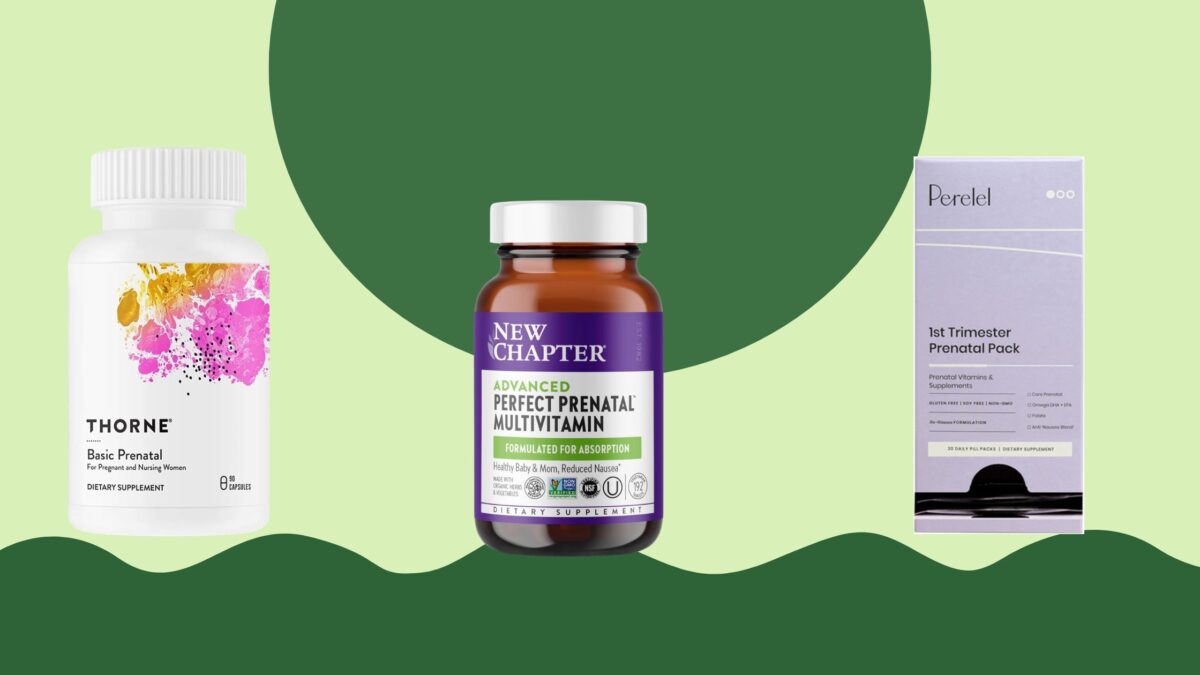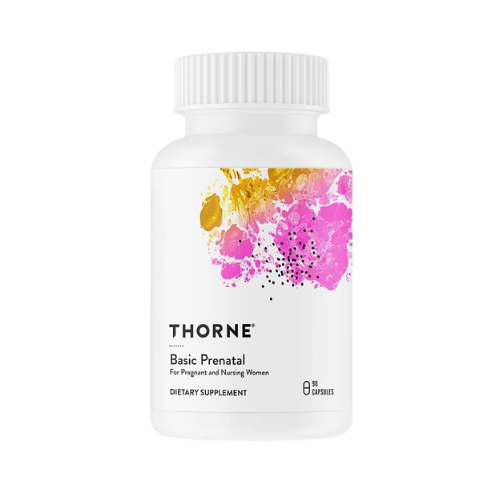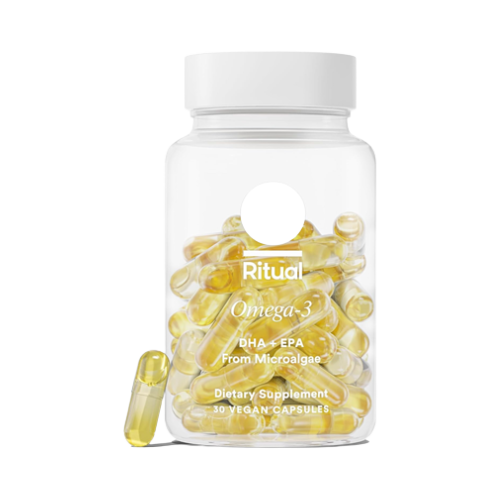


Medically Reviewed By Margaret Etudo. Written By The Vitamins For Woman Team.
Early pregnancy vitamins are essential to support your growing baby and keep you feeling your best.

We include products we think are useful for you. If you buy through links on this page, we may earn a small commission or other tangible benefits. Here’s our process.
Congratulations—you’re pregnant! Whether you’re a few weeks in or planning for a baby soon, this is the perfect time to start focusing on your nutrition. One of the most important things to do in early pregnancy is ensure you’re getting the right vitamins.
Your body is now working overtime to support the development of a tiny new life, and having the proper nutrients on board can make a world of difference for both you and your baby.
In this guide, we’ll explore the best early pregnancy vitamins, what key nutrients to look for, helpful foods to eat, signs you may need a supplement boost, and much more.
In the first trimester, your baby’s major organs and systems begin to form. This makes it a critical time for proper nutrition.
Vitamins help bridge any gaps in your diet and ensure that both you and your growing baby have everything needed for healthy development.
Nutrients like folic acid help prevent neural tube defects, iron supports blood volume expansion, and omega-3s play a role in brain development. Getting these nutrients early on lays the foundation for a healthy pregnancy.
1. Ritual Prenatal Multivitamin
Ritual offers a vegan-friendly, non-GMO prenatal vitamin that includes key nutrients like folate (from food), iron, vitamin D, and omega-3 DHA. Its delayed-release capsule makes it gentle on the stomach, which is perfect for women in the first trimester.
2. New Chapter Advanced Perfect Prenatal Multivitamins
This whole-food-based vitamin includes organic, non-GMO ingredients and is fermented for better absorption. It contains folate, iron, and vitamin D3, plus added ginger to help with morning sickness.
3. SmartyPants Prenatal Formula Gummies
For those who have trouble swallowing pills, these tasty gummies are a great option. They include folate, omega-3 DHA, vitamin D, B12, and iodine, although you’ll need an iron supplement separately as these gummies don’t contain it.
Recommended by many healthcare providers, Thorne prenatal is free from additives and allergens. It contains the active form of folate, iron bisglycinate (gentle on the stomach), and a range of essential vitamins and minerals.
This unique system includes trimester-specific formulations. The first-trimester pack contains a prenatal multivitamin, omega-3 DHA+EPA, and B6 + ginger for nausea support. It’s tailored to early pregnancy needs.

Thorne’s Basic Prenatal provides folate, choline, and 18 other nutrients that support health without the unnecessary additives in mainstream prenatal.
Buy Now
SmartyPants Prenatal Multi & Omegas contains more nutrients than the leading prenatal multi gummy and is made to help fill nutrient gaps.
Buy Now
It’s formulated with key nutrients for before and during pregnancy, including Omega-3 DHA, Choline, and Folate. Plus it’s designed to be gentle on the stomach.
Buy Now
Each pack includes a full-spectrum prenatal vitamin, Omega EPA + DHA supplements, Methylfolate and an Anti-Nausea capsule.
Buy Now
Complete prenatal vitamin with folate for baby’s healthy brain and spinal cord development.
Buy Now1. Folic Acid
Folic acid is arguably the most important nutrient during early pregnancy. It helps prevent neural tube defects that affect the brain and spine. The CDC recommends at least 400 to 800 micrograms (mcg) of folic acid daily for women who are pregnant or trying to conceive.
2. Iron
Iron is essential for forming red blood cells and transporting oxygen. During pregnancy, your blood volume increases significantly, so your iron needs go up as well. Iron deficiency can lead to fatigue, weakness, and anemia.
3. Calcium
Calcium helps develop your baby’s bones, teeth, muscles, and nerves. If you’re not getting enough from your diet or supplements, your body will pull calcium from your bones to supply the baby.
4. Vitamin D
Vitamin D supports the development of bones and the immune system. It also helps with calcium absorption. Many people are deficient in vitamin D, so it’s an important nutrient to include in your prenatal routine.
5. Omega-3 Fatty Acids
Particularly DHA, omega-3s support fetal brain and eye development. They may also help prevent preterm labor and support maternal mood. Since many diets lack sufficient omega-3s, a supplement can help ensure you’re meeting your needs.
Vitamins for Woman is your partner in your health and wellness journey. Focusing on your well-being in your daily life, we are dedicated to supporting, guiding, and empowering you.
At Vitamins for Woman, we put you first, ensuring we only give you expert-reviewed information that empowers you to take charge of your life and pregnancy journey.
We recognize the unique challenges everyone faces. Therefore, we lend an empathic and understanding voice from our personal stories and inclusive information.
Choosing the best supplement is not a sprint for us. Instead, we take our time to carefully curate the best supplements for your needs. By consulting our in-house experts and partnering with third-party professionals, we consider several factors closely. We value high-quality products, so we consider the composition, ingredient quality, testing, and certification and also compare the forms and dosage.
Also, we try to cater to different budgets and needs, so we review the prices and choose the best value for your money. Understanding that a high price does not equate to good quality, Vitamins for Women recommends the best quality for your money.
While we may not cover all grounds, we do well to be comprehensive and put you first. This is a comprehensive guide, but we recommend that you consult your doctor before taking any iron supplements during pregnancy.
Your body may signal when it’s time to boost your vitamin intake. Watch out for the following signs:
If you experience any of these symptoms, speak with your healthcare provider to evaluate your vitamin and mineral needs.
Most prenatal vitamins are well-tolerated, but some people may experience nausea, constipation, or stomach upset. Choosing a supplement with a gentle iron form (like iron bisglycinate) or taking it with food can help.
Ideally, start taking prenatal vitamins at least one month before trying to conceive. If you’re already pregnant, it’s never too late—start as soon as you can. Early pregnancy is when the baby’s brain and spine are forming, so folate is especially important.
While a balanced diet is the best foundation, it’s difficult to meet all your needs—especially folate, iron, and DHA—through food alone. Supplements help bridge the gap and ensure your baby gets everything needed for healthy development.
Your first trimester is full of changes—some beautiful, some challenging. Choosing the right early pregnancy vitamins can help ease the transition and ensure your baby gets off to a healthy start. Look for supplements with folate, iron, calcium, vitamin D, and omega-3s, and pair them with a nutrient-rich diet.
And remember: every pregnancy is unique. Work with your healthcare provider to find the prenatal vitamin that works best for your individual needs.

medically reviewed by margaret etudo, BPharm. written by the vitamins for woman team.